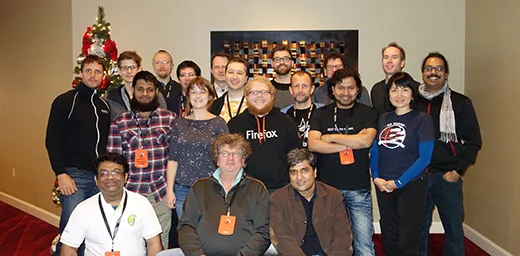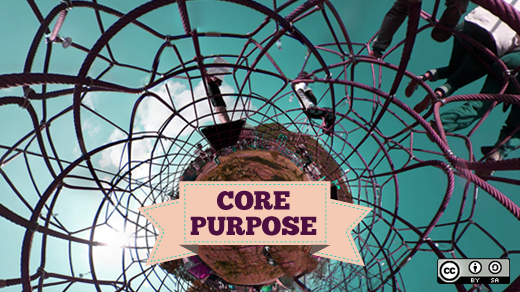I'm not exaggerating when I say that Mozilla's Portland coincidental work week was an example of perfect collaboration between staff and community members.
Portland coincidental work week is multiple work weeks, happening in the same city, at the same time, all within a few city blocks of each other + some opportunity to get together as one big group as well as with other teams as it makes sense. Then, on the last day, we have a giant party, Mozilla-style!—from the Mozilla Wiki
I was invited to this unique meetup by Mozilla's localization team, which I've been volunteering with for 10 years as a language localization (l10n) coordinator for Hindi.
"Free as in free speech, not free beer"
Before I go into too much detail about what the localization team did in the meetup, I'd like to highlight the keynote from Mozilla Foundation Executive Chairwoman Mitchell Baker. She spoke at length about the importance of free and open source and stressed that FLOSS is the means and end for Mozilla. Quoting open source activist Richard Stallman, she said to think of free and open source software as "free as in free speech, not free beer."
This is exactly the kind of message that a FOSS-based company's top executive should communitcate. Mozilla CEO Chris Beard and Director Mark Surman also shared their views about the future of the foundation and its commitment to an open web. Surman also stressed the importance of power of participation, which has power to shake the monopoly of big empires.
Apart from keynotes by top executives, NASA's Brian Muirhead and blogger, webcomic author, and software engineering manager Michael Lopp shared their views.
The 'coincidental work week' begins
After the speeches, participants were broken up into their respective teams and sent to different venues in Portland. Like all the other teams, localization set an agenda ahead of time. During the week, I presented on the importance of style guide and standard terminology on the FUEL Project.
The team also discussed consolidating of resources for Bengali, India (bn-IN) and Bengali, Bangla Desh (bn-BD) locales. We also discussed strategies for how localizers could increase Firefox desktop/mobile in their own regions. We also had some cross-team discussion about branding issues, reviewing current guidelines' impact on localization and issues with non-Latin-character-based languages. We also made recommendations on revised guidelines and exception approval process.
The l10n team discussed ways to improve communication between Mozilla, l10n drivers, and community. We also talked about having Firefox in all the languages of India and the related collaboration issues. Mozilla's director special projects and first employee Chris Hofmann was present for much of the discussion, saying that language and its diversity is something he cares deeply about.
An inspiring effort
L10n teams are incredibly diverse in nature, and Mozilla is no exception. At the meetup, I had a chance to meet people of many different cultures and languages who are all working to enable their Mozilla products. Michael Bauer, for example, works on Scottish Gaelic, a language spoken by less than 100,000 people. Michael's efforts helped Scottish Gaelic be present on several applications.
A year ago, I started working with Angika, another rare language. Meeting Michael inspired me to put more effort toward establishing it on desktop and mobile. Mozilla is a supporter of language preservation, and Scottish Gaelic's presence on its applications is just one of the success story of the community's combined effort.

Thank you
All in all, it was an incredibly focused and effective experience—cross-team collaboration was a priority, and we had the freedom to do the work we wanted to. It was great meeting so many people from the Mozilla localization Team in one place.







Comments are closed.